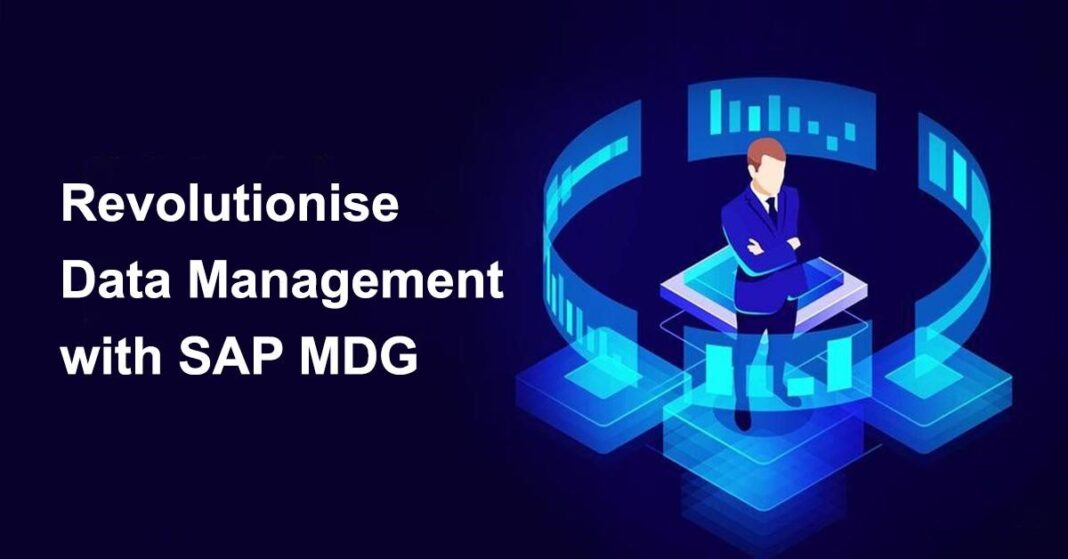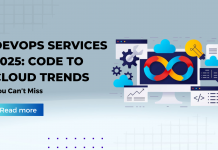Data management is an increasingly important component of business operations in today’s digital-first world. Companies of all sizes must ensure their data is handled securely, efficiently and accurately if they want to remain competitive. SAP MDG (Master Data Governance) provides the tools to help organisations revolutionise the way they manage their data. This article will explore how SAP MDG can be used to streamline data management processes and provide a unified view of essential information across the enterprise.
What is SAP MDG?
SAP Master Data Governance (MDG) is an enterprise data management solution that enables organisations to manage and govern their master data in a centralised, standardised, and trustworthy manner. It provides a framework for creating and maintaining high-quality master data across multiple domains such as customers, suppliers, products, and financials. With SAP MDG, organisations can streamline their business processes by eliminating duplicate records, ensuring data accuracy and consistency across systems.
SAP MDG provides a flexible approach to governance rules allowing companies to define custom workflows specific to their business needs. This means that business rules for data validation or approval can be set up without needing any technical knowledge. The user interface is intuitive and easy-to-use which simplifies the process of managing complex master data objects.
In conclusion, SAP MDG is an essential tool for businesses looking to improve their overall performance by centralising master data management processes. By reducing errors caused by inconsistent or outdated information across the organisation’s systems, businesses can make better decisions based on accurate information.
Benefits of SAP MDG
SAP MDG is a powerful data management tool that can help organisations improve the accuracy and consistency of their data. One of the key benefits of SAP MDG is its ability to streamline data governance processes, enabling companies to manage their master data more efficiently. By leveraging SAP MDGs automated workflows and approval processes, businesses can ensure that their data is up-to-date, accurate, and compliant with regulatory requirements.
Another significant advantage of SAP MDG is its ability to centralise master data management across an organisation. With this tool in place, businesses can achieve a single version of truth for all their critical enterprise data, reducing the risk of errors and inconsistencies. Additionally, by consolidating master data into a unified view, businesses can gain greater insights into customer behaviour patterns or supplier performance metrics.
Finally, SAP MDG also enables organisations to reduce operational costs associated with manual data processing tasks such as cleansing or deduplication. With automation features enabled by SAP MDGs robust algorithms and machine learning capabilities – users are able to work faster with improved accuracy while eliminating errors caused by human input. Overall – implementing SAP Master Data Governance translates to better decision-making outcomes across all business units through accurate and reliable information at the company’s fingertips.
Features of SAP MDG
SAP Master Data Governance (MDG) is an enterprise-wide solution that provides a centralised platform for managing master data. The main aim of MDG is to ensure data consistency and accuracy across all business units and applications. It provides features such as data governance, change management, and data quality management.
One of the main features of SAP MDG is its ability to manage multiple domains such as customer, supplier, material, and financial data. This ensures that all critical business data is managed in a consistent manner across different applications within the organisation. Additionally, it allows for seamless integration with other SAP solutions such as SAP S/4HANA and other third-party systems.
Another key feature of SAP MDG is its workflow capabilities which enable effective change management processes for master data. It provides configurable workflows that can be customised based on specific business requirements. This ensures that changes made to master data are properly authorised by relevant stakeholders before being implemented.
Overall, SAP MDG helps organisations achieve better control over their master data through governance processes while improving efficiency in managing changes to the same.
Examples of Companies Using SAP MDG
SAP Master Data Governance (MDG) is an innovative data management solution that helps companies to streamline their business processes and reduce errors and duplications in master data. Many companies across various industries have been using SAP MDG to enhance their data governance, including multinational corporations like Coca-Cola European Partners, Siemens, and IBM.
Coca-Cola European Partners (CCEP), one of the world’s largest independent bottlers of The Coca-Cola Company’s products, used SAP MDG as a part of its digital transformation strategy. CCEP aimed to create a more efficient process for managing master data across its multiple systems and stakeholders. With SAP MDG implementation, CCEP was able to standardise its data governance rules while maintaining flexibility in customising specific business requirements.
Similarly, Siemens AG leveraged the power of SAP MDG as a key component in its enterprise-wide digitalization initiative called “Siemens 2020.” The company used this solution to consolidate various sources of master data into a single platform that could be easily accessed by all departments within the organisation. This helped improve operational efficiency by reducing the time taken for creating or updating master data records.
Another example is IBM Corporation – they sought to optimise their global supply chain processes by implementing SAP MDG alongside other solutions such as IBM Sterling B2B Integrator.
Implementation Strategies
One of the key aspects of revolutionising data management with SAP MDG is implementing a sound strategy. An effective implementation strategy involves setting clear goals and objectives, identifying potential roadblocks, and creating a plan to mitigate them. It is also important to have a team that is capable of executing the plan and providing support throughout the process.
One crucial step in implementing SAP MDG is conducting a thorough analysis of existing data structures and processes. This helps identify areas for improvement as well as any potential challenges that may arise during implementation. Once these challenges are identified, it becomes easier to develop workable solutions that will facilitate smooth adoption of SAP MDG.
Another critical aspect of implementing SAP MDG involves ensuring that users are adequately trained on how to use the system. Investing in training programs ensures that users understand how the system works, which boosts adoption rates while minimising errors and misconceptions about the software’s capabilities. With an effective implementation strategy, organisations can leverage SAP MDG to improve their data management practices while improving efficiency across all departments involved in managing data assets.
Advantages for Businesses
SAP MDG is a powerful tool that can revolutionise data management for businesses. One of the main advantages businesses get from using SAP MDG is improved data quality. This leads to better decision-making, increased efficiency and reduced costs. With accurate data at their fingertips, business leaders are able to make informed decisions that drive growth and profitability.
In addition, SAP MDG helps businesses streamline their data management processes by automating manual tasks such as data entry and validation. By reducing the time spent on these tasks, employees are freed up to focus on more important activities like customer engagement or product development.
Finally, SAP MDG also enables businesses to stay compliant with regulatory requirements by ensuring all information is accurate and up-to-date. This can help prevent costly fines or legal action down the line, giving business owners peace of mind knowing they are operating within the bounds of the law. Overall, SAP MDG offers a range of benefits for businesses looking to improve their data management practices and streamline operations.
Conclusion:
In conclusion, implementing SAP MDG can revolutionise data management for any organisation. With its advanced features and functionalities, it can help organisations streamline their data governance processes and ensure accuracy, consistency, and completeness of data across various systems. The solution’s ability to integrate with other SAP applications enables seamless data exchange and reduces errors caused by manual interventions.
Moreover, SAP MDG provides a comprehensive view of master data that helps organisations gain deeper insights into their business operations. With this knowledge, they can make informed decisions quickly and efficiently. The solution also offers flexible deployment options: cloud-based or on-premise installations to cater to the unique needs of different organisations.
In summary, embracing SAP MDG is not only essential for ensuring accurate master data but also necessary for businesses looking to optimise their operations fully. It is an investment that promises long-term benefits such as improved efficiency, better decision-making capabilities, reduced costs due to fewer errors and streamlined processes – all of which are critical for any organisation’s success in today’s fast-paced market environment.
Author Bio:
Pooja Bavireddy is a tech-savvy worker working as a Research Analyst . She is passionate about researching various technologies ,startups, and dreams big to accomplish varying goals.She is an expert in presenting information on market-leading technologies such as Pega, VMWare, SAP IBP, Webmethods, SCCM, SAP MDG, and others.








